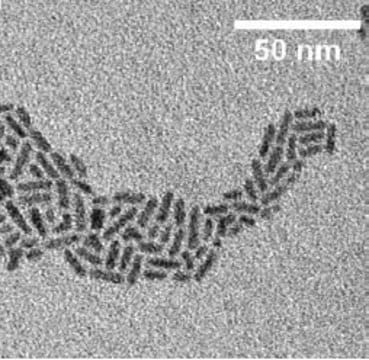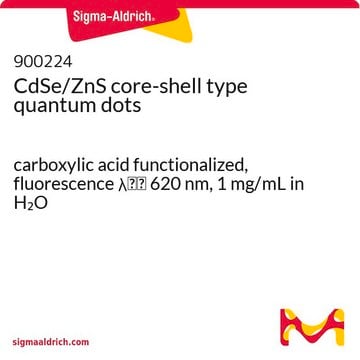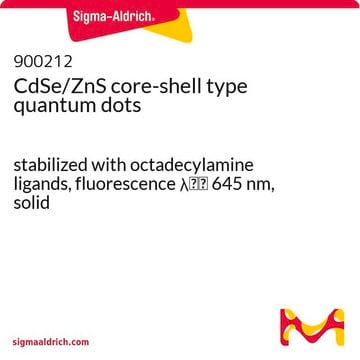900514
CdSe/CdS core-shell type quantum rods
fluorescence λem 620 nm, 5 mg/mL in hexane
Sinónimos:
CANdot®, Elongated quantum dots, Fluorescent nanocrystals, QDs, Quantum rods
About This Item
Productos recomendados
form
dispersion
Quality Level
concentration
5 mg/mL in hexane
aspect ratio
5
fluorescence
λem 620 nm
λem 620 nm±8 nm FWHM <45 nm, quantum yield >70%
functional group
carboxylic acid
storage temp.
2-8°C
¿Está buscando productos similares? Visita Guía de comparación de productos
Application
Legal Information
signalword
Danger
Hazard Classifications
Aquatic Chronic 2 - Asp. Tox. 1 - Carc. 1B - Flam. Liq. 2 - Muta. 2 - Repr. 2 - Skin Irrit. 2 - STOT RE 2 - STOT RE 2 Inhalation - STOT SE 3
target_organs
Central nervous system, Nervous system
wgk_germany
WGK 3
Certificados de análisis (COA)
Busque Certificados de análisis (COA) introduciendo el número de lote del producto. Los números de lote se encuentran en la etiqueta del producto después de las palabras «Lot» o «Batch»
¿Ya tiene este producto?
Encuentre la documentación para los productos que ha comprado recientemente en la Biblioteca de documentos.
Artículos
Professor Sharma and colleagues review the synthesis and applications of this novel material. This includes a discussion of the unique properties of quantum dots and their suitability for solar cell applications, along with common synthesis techniques used to develop these materials.
Professor Xiaohu Gao (University of Washington, USA) provides a overview of recent quantum dot (QD) advancements and their potential for advancing bioassay and bioimaging technologies.
Perovskite quantum dots research progresses overcoming challenges, enabling rapid development of light-emitting devices.
Nuestro equipo de científicos tiene experiencia en todas las áreas de investigación: Ciencias de la vida, Ciencia de los materiales, Síntesis química, Cromatografía, Analítica y muchas otras.
Póngase en contacto con el Servicio técnico









